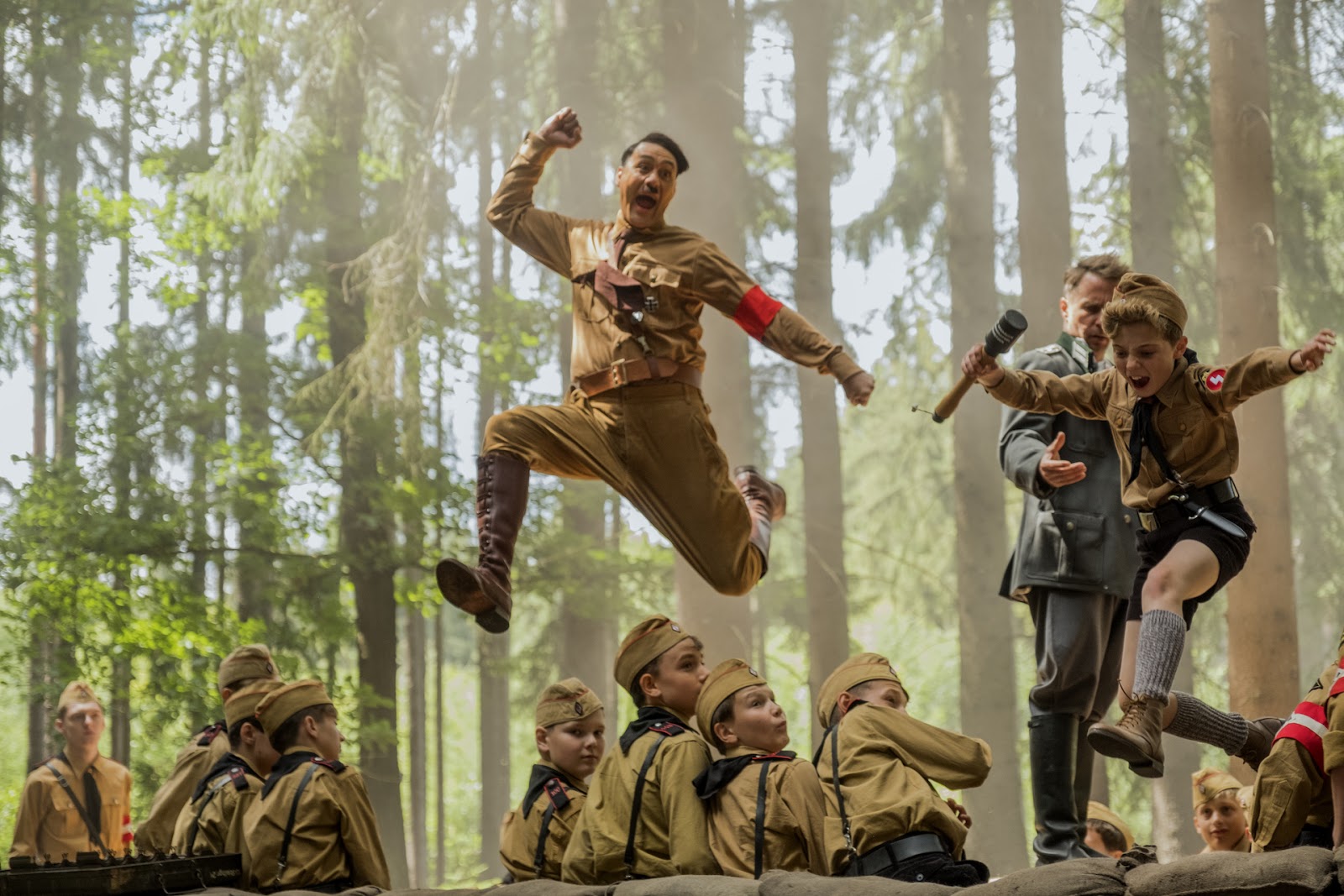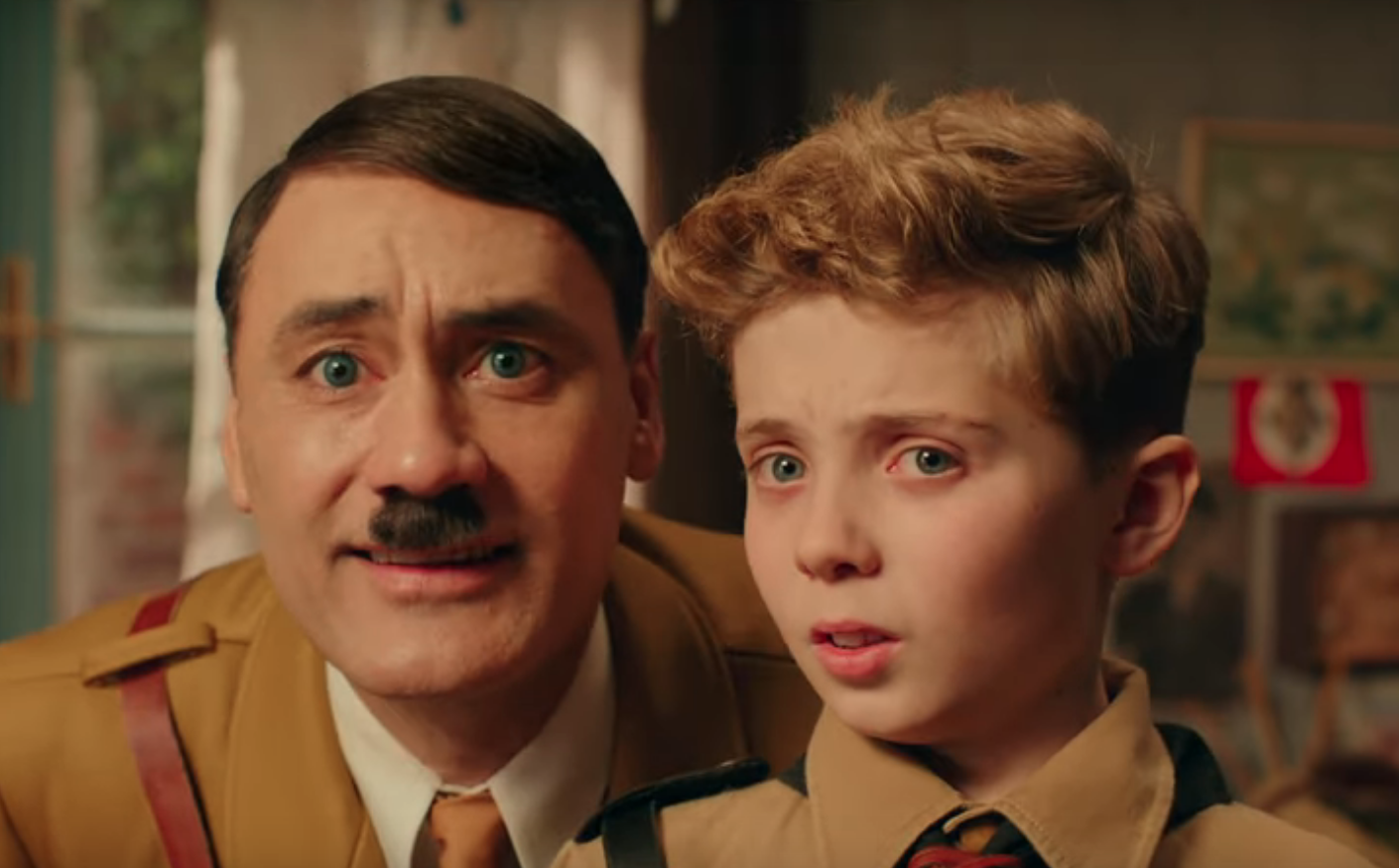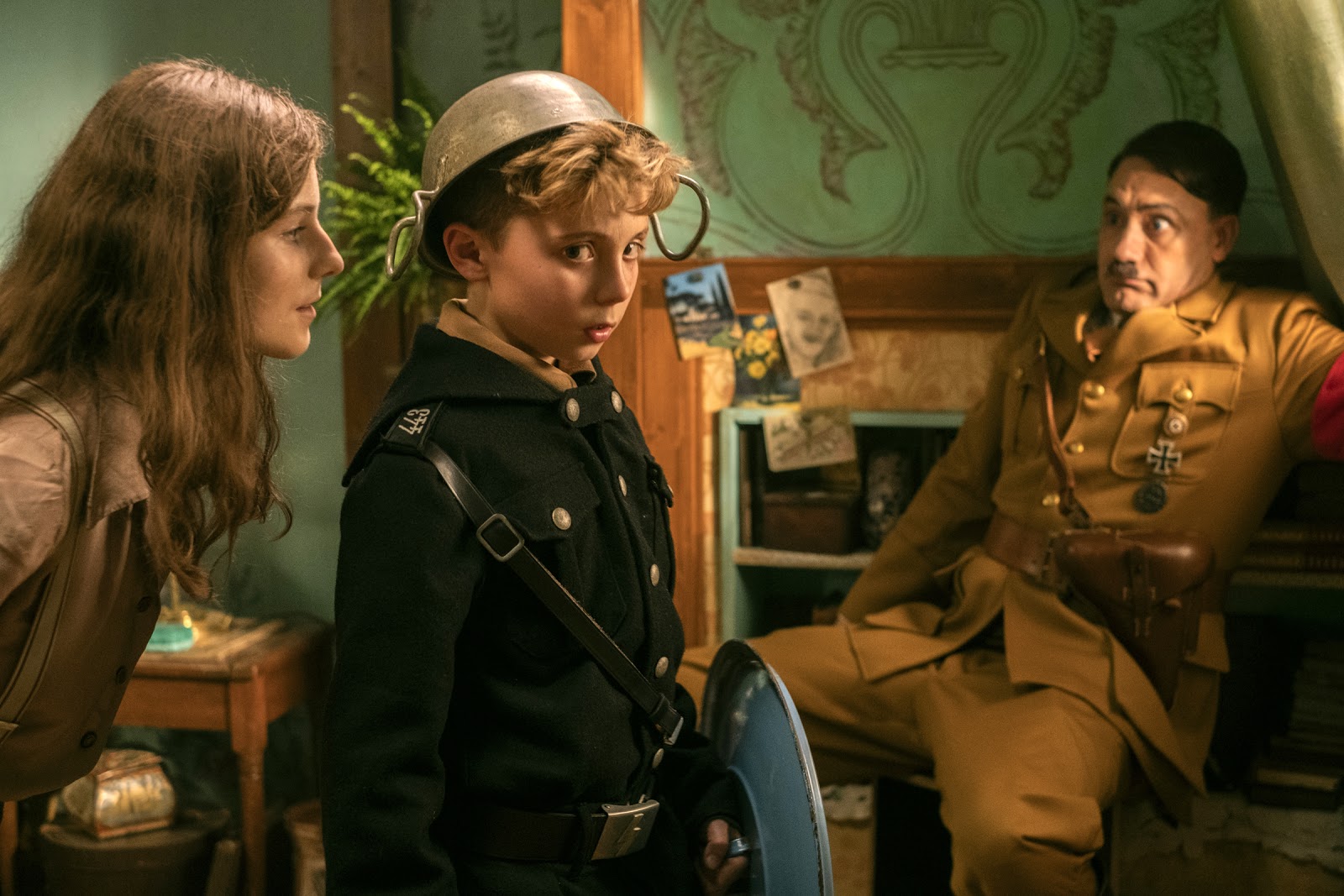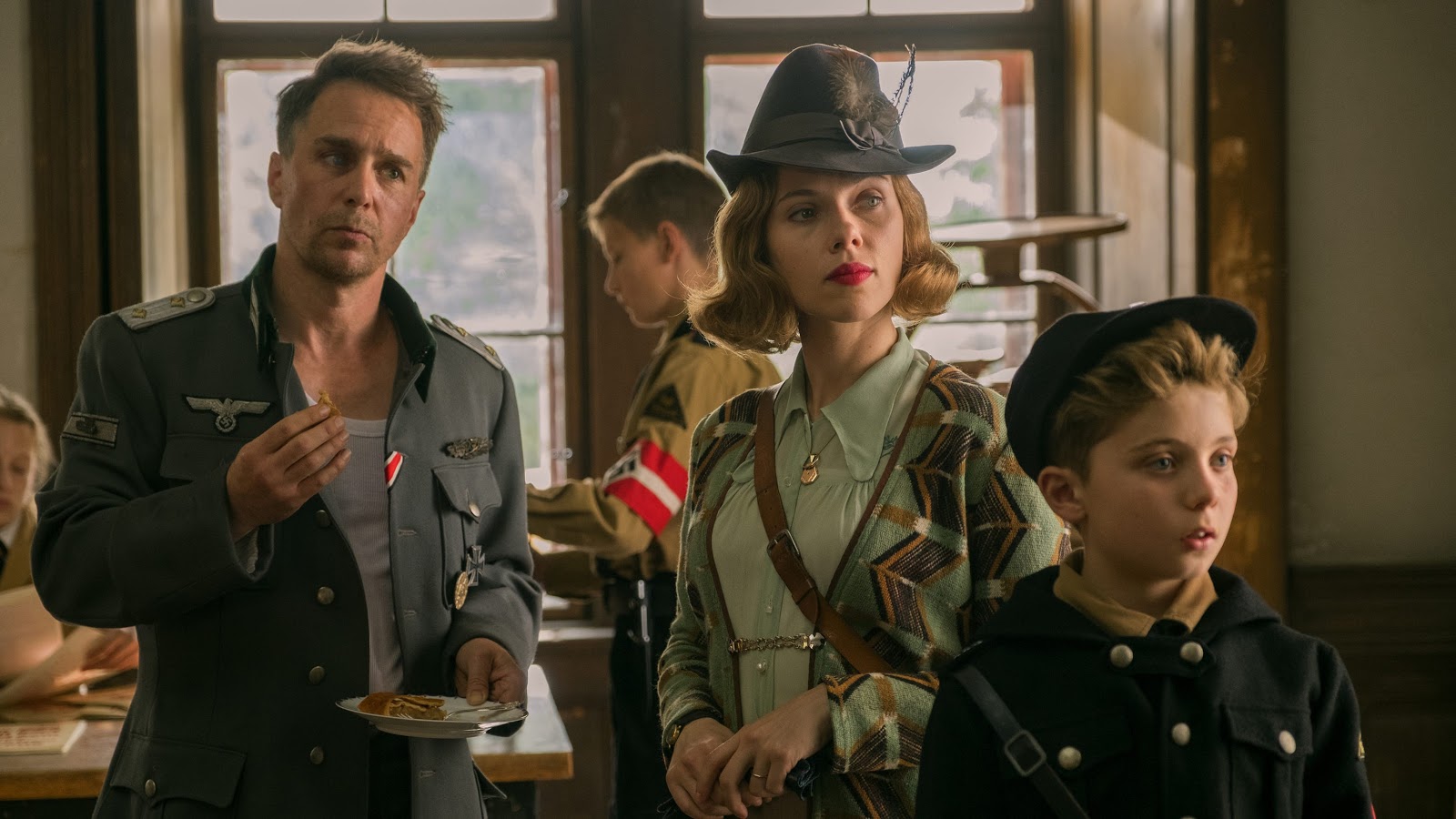“It’s definitely not a good time to be a Nazi.”
As has been well-documented in a variety of media, infamous dictator Adolf Hitler and his ideologies are no strangers to being made the subject of mockery. Heck, even Donald Duck had a nightmare he became a Nazi in Walt Disney’s 1943 animated short “Der Fuhrer’s Face.” And though these days it’s just a tiny bit harder to get away with incorporating controversial ideas in comedy without facing widespread criticism, auteur filmmaker Taika Waititi (Thor: Ragnarok, What We Do in the Shadows) has found the right tone in which to do so in the new absurdist satire Jojo Rabbit, from the now-Disney-owned studio Fox Searchlight.
Jojo Rabbit is the story of a ten-year-old German boy (played by the incredibly talented newcomer Roman Griffin Davis) named Jojo, who has been enlisted into the Hitler Youth organization during the late World War II period. Jojo has been so thoroughly indoctrinated into blindly following tenets of national socialism that he even has a familiar-looking imaginary friend named Adolf (hilariously embodied by director Waititi, who also voices the playfully soft-spoken Korg in the Marvel Cinematic Universe) who guides him through the perils and pitfalls of growing up in such a tumultuous time and place.
Too compassionate to kill a defenseless animal during a misguided training exercise at boot camp, our protagonist earns the nickname “Jojo Rabbit” and become a target for teasing among his peers. Then when a played-for-laughs munitions accident sidelines him from any future service in the army, Jojo finds himself stranded in his hometown, running errands for the military and spending time with his loving, attentive mother (Scarlett Johansson, in a surprisingly tearjerking role) in their upper-class home.
As a latchkey kid while mom is off running clandestine opposition to her government, Jojo makes a surprising discovery living in the walls of his late sister’s room– an Anne Frank-esque Jewish refugee (Thomasin McKenzie of Leave No Trace) who Jojo finds both repulsive and intriguing. From that point on, the title character must grapple with the hatred that’s been instilled in him by his superiors as he learns more about and comes to befriend his houseguest. He must decide whether to trust the vehement ravings of the incensed, invisible Adolf, or to go with his gut and protect his new acquaintance, who turns out to be far more human than he’s been taught to expect.
Naturally, nazism and genocide can be tricky matters to deal with in humorous ways, but Taika strikes a proper, pleasantly stomachable balance between farce and sentimentality. The film gets kicked off to a raucous, joyous start by a lively and fantastically juxtaposed tribute to A Hard Day’s Night featuring archival WWII imagery accompanied by The Beatles’ famous German-language recording of “I Wanna Hold Your Hand,” establishing a soundtrack that follows through with similarly anachronistic tunes that underscore the story’s setting and inject cheer to admirably offset the more maudlin moments.
The movie’s supporting cast is rounded out by Sam Rockwell (Moon), Rebel Wilson (Pitch Perfect), and Alfie Allen (Game of Thrones) as Hitler Youth supervisors who each have their own delightful little quirks and add some more variety to the personality of the nazi party as depicted here, though that depiction is highly unlikely to be considered historically accurate. British comedian Stephen Merchant (BBC’s The Office, Logan) also pops up in a scene-stealing cameo as a nefarious Gestapo agent that comes across as a more stooge-like take on Cristoph Waltz’s Hans Landa from Inglourious Basterds.
Based on the novel Caging Skies by New Zealand-residing author Christine Leunens, Jojo Rabbit successfully blends whimsy with earnestness, though it occasionally veers a bit too close to feeling like an imitation of Wes Anderson’s style in its shot composition and production design. And although some of the jokes (like a couple quick throwaway gags about clones and German shepherds) are silly to the point of forehead-slapping ridiculousness, there’s an equilibrium achieved by mixing in a moment or two of sheer heart-wrenching sadness. And it’s all in the service of a young boy finding a way to channel his empathy into overcoming the circumstances of his upbringing.
Over the three quarters of a century spent dealing with the aftermath of his ideas and actions, I believe humanity has proven to itself that Hitler was indeed a funny guy, or at the very least can be made funny by supremely gifted storytellers like Taika Waititi. And if nothing else, Jojo Rabbit is further evidence that we often choose to overcome and understand the otherwise incomprehensible by simply ridiculing it. After all, there is inherent glee in art triumphing over evil.
My grade: 4 heils (out of 5).
Jojo Rabbit is now playing in select theaters.




